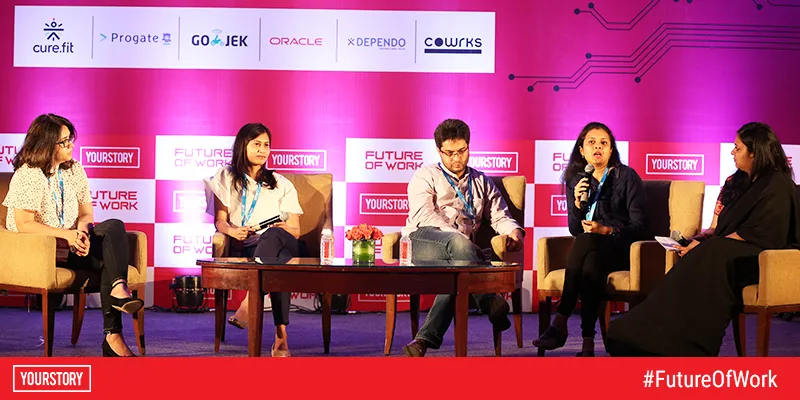‘There is lot of time to make the teams diverse, but it is very hard to make them inclusive’ - Sachi Krishana on why diversity matters
A new research out of MIT’s Media Lab is underscoring what other experts have reported or at least suspected before: facial recognition technology is subject to biases based on the data sets provided and the conditions in which algorithms are created.
In the backdrop of Artificial Intelligence and Machine Learning taking over human jobs, how important is it for an organisation to be diverse? A group of experts came together to kickstart an intense conversation around why diversity matters at the Future of Work conference by YourStory on Saturday.
The panelists included Ishani Roy, Founder - Serein, Sachi Krishana, Head HR - Amazon Internet Services Pvt Ltd, Neha Bagaria, Founder - JobsForHer and Vishal Chopra, Chief Revenue Officer - LendingKart. The session was moderated by Tanvi Dubey, Editor - Growth, YourStory.
Ishani said, “Diversity is very important in an age where machines are making decisions. One always thinks data is unbiased, after all, it is just a bunch of numbers, But that is not true. The AI and ML software prone to bias as well. If there are certain inherited prejudices or stereotype patterns in the language or data that one is feeding into the software it often makes a decision which is quite biased.”
With a number of companies considering diversity a challenge, especially when women need to take a career-break at some point in their lives, how does one cope with such and other challenges?

The panelists narrated their own experiences on how diversity had helped them in decision-making (pinpointing some of the crucial ones too).
Vishal said, “In India, besides the gender-ratio perspective, different regions/languages too play a big role. If one has a product team and is a consumer company catering to a pan-India base, then it would really help to have a diverse team.”
In an age where work is getting democratised and companies are becoming more agile and nimble, finding time to be diverse could also pose a challenge.
“There is a lot of time to make teams diverse, but it is very hard to make them inclusive,” said Sachi.
She added: “Diversity and inclusion are polarities. When we talk about diversity. it should enable one to bring one’s individual authentic self to work. Inclusion is all about making the difference work. There is an inherent tension between the two and it all boils down to the skills of the leaders.”
Using ‘values’ and ‘culture’ in an effective way, does help cope with the ‘inclusive’ behemoth, concurred the panelist.
Neha said, “Having more conversations around inclusion and diversity can also help. In my company, when I started out, I made sure to have a children's room at work so that working women felt included and weren't left out.”
The panelists were unanimous in their belief that the issue goes far beyond gender. People of different races, sexual orientation, and other differentiating factors all bring something unique to the table. But it is the little steps that will go a long way in ensuring diversity and inclusion.
A big shout out to all our sponsors - CureFit, Oracle, Progate, Gojek, Dependo and Cowrks.







